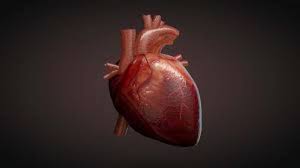

Islam has made significant contributions to human health in a number of ways.
* **Promotion of preventive care:** Islam emphasizes the importance of preventive care, such as regular exercise, a healthy diet, and avoiding harmful substances. The Quran states, “O children of Adam, take your adornment at every masjid, and eat and drink, but be not excessive. Indeed, He likes not those who commit excess.” (Quran 7:31)
* **Establishment of hospitals:** The first hospitals were established in the Muslim world in the 8th century. These hospitals were not only for the treatment of the sick, but also for the education of medical professionals. The first medical school was established in the 10th century in Baghdad.
* **Development of medical knowledge:** Muslim scholars made significant contributions to the development of medical knowledge. They translated Greek and Roman medical texts into Arabic, and they made original contributions to the fields of anatomy, physiology, pharmacology, and surgery. The most famous Muslim physician was Ibn Sina (Avicenna), who wrote the Canon of Medicine, which was the most comprehensive medical text in the world for centuries.
* **Promotion of public health:** Islam also emphasizes the importance of public health. The Quran states, “And keep yourselves pure.” (Quran 2:222) This verse has been interpreted to mean that Muslims should take steps to protect their health, such as washing their hands, drinking clean water, and disposing of waste properly.
Today, Islam continues to make important contributions to human health. Muslim doctors and nurses work in hospitals and clinics around the world, and Muslim scientists are developing new treatments for diseases. Islam’s emphasis on preventive care and public health is also helping to improve the health of people in Muslim-majority countries.
Here are some specific examples of Islam’s contributions to human health:
* **The use of honey for wound healing:** Honey has been used for centuries to treat wounds. The Quran mentions honey in several verses, and it is said that the Prophet Muhammad used honey to treat his wounds. In modern times, honey has been shown to have antibacterial, antifungal, and anti-inflammatory properties. It can be used to treat a variety of wounds, including cuts, burns, and ulcers.
* **The use of aromatherapy:** Aromatherapy is the use of essential oils to promote health and well-being. Essential oils are extracted from plants, and they have a variety of properties, including antibacterial, antifungal, and anti-inflammatory properties. Aromatherapy has been used for centuries in traditional Islamic medicine. In modern times, aromatherapy is used to treat a variety of conditions, including anxiety, depression, and pain.
* **The use of massage therapy:** Massage therapy is the use of hands to manipulate the soft tissues of the body. Massage therapy has been used for centuries in traditional Islamic medicine. In modern times, massage therapy is used to treat a variety of conditions, including pain, stress, and anxiety.
These are just a few examples of Islam’s contributions to human health. Islam’s emphasis on preventive care, public health, and the use of natural remedies has helped to improve the health of people around the world.
2024 ZIMSEC O Level Results Now Out The Zimbabwe School Examinations Council (ZIMSEC) has officially…
Former Vice President Phelekezela Mphoko has died aged 84, presidency spokesman George Charamba has confirmed.…
The Zimbabwe School Examinations Council (ZIMSEC) opened its online portal for Grade 7 results…
2024 ZIMSEC Grade 7 Results Now Out The Zimbabwe School Examinations Council (ZIMSEC) has officially…
We’re bringing free WiFi to different parts of Zimbabwe to help you access eduzim.co.zw for…
Sadza is a simple, hearty dish that forms the backbone of many Zimbabwean meals. It's…